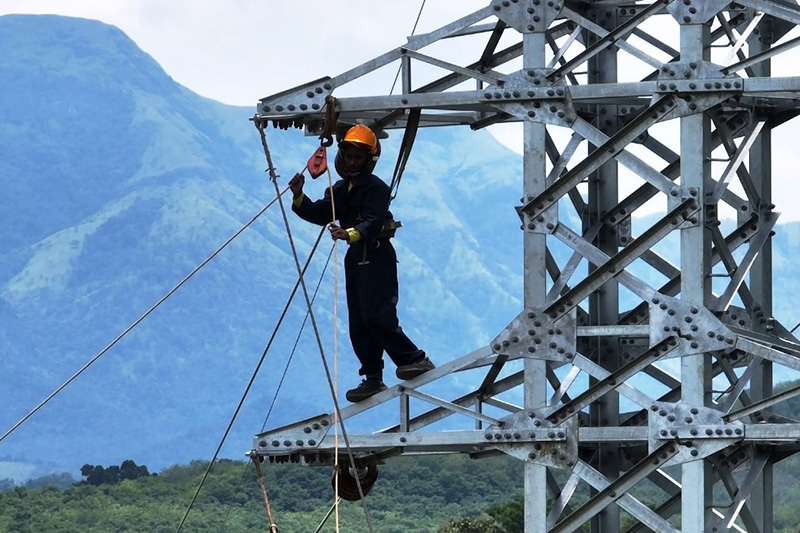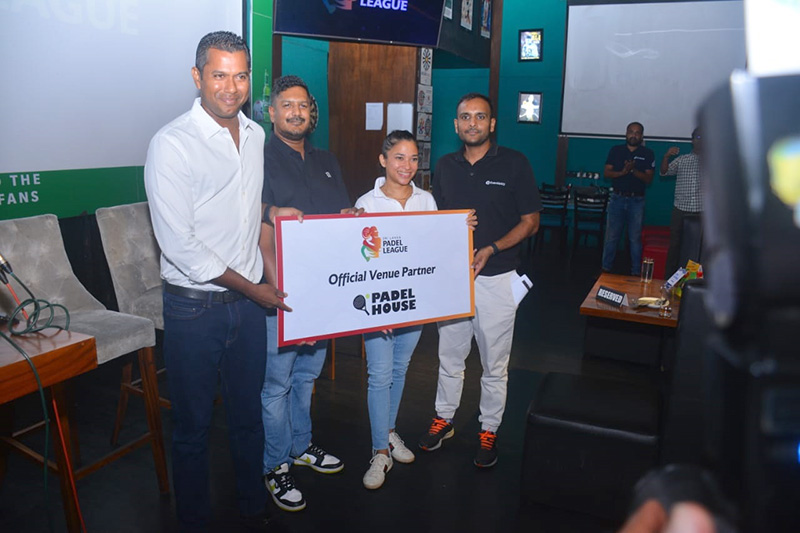Business
A turnaround in farmers’ opinion of oil palm cultivation

Farmers who supported the ban on the crop in 2021 now want it lifted
by Sanath Nanayakkare
Oil palm cultivation which underwent heavy criticism in Sri Lanka due to environmental concerns and subsequently led to a ban imposed on it by former president Gotabaya Rajapaksa in April 2021 is now taking an interesting turn of events due to tea and rubber smallholders’ insufficient incomes and what they describe as ‘better awareness’ of oil palm cultivation.
With just over two and a half years, the very same tea and rubber smallholders who had protested against the cultivation of oil palm in their region are now appealing to the government to lift the ban and allow them to cultivate oil palm in their tea and rubber lands as an intercrop.
This surprising development in the rural agri-sector was revealed to The Island Financial Review (IFR) when it met with farmer members of Haritha Derana Society – a group of tea and rubber smallholders in Baduraliya, Matugama in Kalutara district recently.
“First of all, we must say that we were at the forefront of the campaign against oil palm cultivation which partly influenced the ban on the cultivation of oil palm in 2021 by the then president Gotabaya Rajapaksa. When we think back to what motivated us to join the protest bandwagon in 2021 and the current state of things on the ground, we feel remorse and guilt for not acting on wiser judgment. In fact, we were emotionally influenced by popular opinion that prevailed at the time, and we went with the flow without considering the true environmental science behind oil palm cultivation,” farmer Siripala Edirisinghe said.
“The effect of oil palm on groundwater resources isn’t significantly different from that of rubber. Scientifically, it is a fact that a single oil palm tree consumes about 249 litres of water per day against 63 litres by a rubber tree. However, the consumption of water per hectare of oil palm is only slightly higher than that of a hectare of rubber because fewer oil palms are planted per hectare. A hectare of rubber requires 31,500 litres of water per day while a hectare of oil palm requires 34,680 litres. This has been scientifically calculated and publicized”, farmer M.S. Samaranayake said.
“Oil palm cultivation in Galle district commenced about 50 years ago – long before in Kalutara district. However, there have been no reports to date of water shortages in Galle district due to oil palm. Kalutara district receives an annual average rainfall of about 318 millimeters and the region has 267 rainy days on average. This means it rains 73% of any given year. This year it was even more as you know. So, there is no basis for the concern that oil palm cultivation can lead to a deficit in water resource,” farmer T.A. Chandralal said.
“Lots of rain in our district has had an adverse impact on our tea and rubber plantations but not on oil palm estates. Heavy, unseasonal rains have drastically reduced rubber tapping in our region deeply eroding the income of rubber smallholders. Our tea growers also feel the impact of Climate Change on their ever-declining harvests and dwindling incomes. If you check tea brokers’ reports at the Colombo Tea Auction, you will see that the total auction offerings have declined fairly sharply and overall quality of Sri Lankan tea is barely maintained. So, the future indicates that our tea and rubber stallholders are between the devil and the deep blue sea. However, amidst these threats, we are encouraged to see the emerging awareness about oil palm as a vibrant, high-performing industry in Sri Lanka. Therefore, we urge the government to lift the ban and allow oil palm cultivations in our lands ensuring minimum side effects to the environment,” he said.
“Unlike tea and rubber, we need to work less time on oil palm lands between planting and fruit-bearing stage. It will give us a lot of time to attend our household chores and take care of our children’s wellbeing and school work and get them to attend school every day without playing truant and get better grades. I am sure if oil palm cultivation is allowed by the government, there will be a lot of female labour participation in the plantation sector. No other daily plantation work can give enough freedom to a poor working mother,” farmer Kumari Damayanthige said.
Business
IceWarp expands into Sri Lanka, fostering European innovation in collaboration with FentonsIT

IceWarp, a global leader in business communication solutions, has officially launched its cutting-edge platform in Sri Lanka, bringing European expertise in email and collaboration solutions to support the country’s evolving business landscape.
This expansion is driven by a strategic partnership with Fentons Information Technology (FIT), the Information Technology arm of Hayleys Fentons Limited.
The grand launch event held at The Kingsbury Colombo on 4th April, 2025, was graced by several distinguished guests, including Chief Guest Mohan Pandithage, Chairman and Chief Executive of Hayleys PLC.
The presence of Adam Paclt, Global CEO of IceWarp, and Pramod Sharda, CEO for India and the Middle East of IceWarp, along with their global team, highlighted the significance of this expansion. Industry experts, government officials, corporate leaders, and CIOs from the banking, financial services and insurance sectors were in attendance as well, reflecting strong local interest in IceWarp’s European expertise.
With this launch, Sri Lankan businesses now have access to an affordable, scalable and secure alternative to Microsoft 365 and Google Workspace. IceWarp’s advanced Collaboration Suite integrates a wide range of tools into a single, unified platform designed to streamline communication and boost productivity. Offering flexible hybrid deployment options and cost-efficient solution, IceWarp enables organisations to optimise their operations without compromising security or functionality.
Business
Ceylon Energy and HJT China complete key power projects under SESRIP in Sri Lanka

Ceylon Energy and HJT China have successfully completed the Mahiyangana-Kappalthurei 33kV power distribution lines and the Uhana Gantry as part of Sri Lanka’s Supporting Electricity Supply Reliability Improvement Project (SESRIP). Funded by the Asian Development Bank ($42 million), SESRIP aims to expand energy access in underserved regions, including conflict-affected areas and provinces like Uva and North Central.
The project’s infrastructure spans over 270 km of 33kV lines, 13 switching gantries, and 2,372 km of low-voltage extensions.
The projects connect 35,000+ households and improve reliability for 493,000+ consumers; integrates renewables to reduce losses.
The projects’ notable components include: Mahiyangana-Bibila Line: 36 km with 147 steel towers and Kappalthurei-Sixth Mile Post Line: 14 km with 58 towers.
Ceylon Energy Chairman Madushanka Fernando hailed it as a ‘new beginning of a brighter era’, emphasising the project’s role in uplifting rural communities and driving sustainable development.
The initiative underscores Sri Lanka’s commitment to inclusive, reliable energy and climate resilience.
Business
Eventistry Sports launches Sri Lanka’s inaugural franchise padel league

Eventistry Sports, a trailblazer in innovative sporting events, has unveiled the Sri Lanka Padel League (SLPL), the nation’s first franchise-based padel tournament, set to debut in June 2025. This groundbreaking league promises to redefine Sri Lanka’s sports landscape by creating a dynamic national platform for athletes while fostering unity among fans, brands, and communities.
The SLPL will showcase six franchise teams, each embodying the spirit of iconic Sri Lankan locales: the Colombo Chargers, Yala Rangers, Hikkaduwa Riders, Ella Hawks, Arugambay Vipers, and Trinco Warriors. These teams will not only ignite regional pride but also unite the country through a shared passion for padel—a fast-paced racquet sport merging tennis and squash, played on enclosed courts.
“The SLPL is more than a league; it’s a movement,” declared Karin Wijeratne, Director of Eventistry Sports. “By blending franchise sports with Sri Lanka’s vibrant culture, we’re creating a platform where players gain national recognition, fans rally behind their hometown heroes, and brands engage with communities in meaningful ways.”
The league’s launch on June 21–23, 2025, at Colombo’s Padel House courts (CR&FC) will kick off with three days of high-octane matches, preceded by a star-studded player auction on May 16th at The Vault, Colombo City Centre. Local talent—both professional and intermediate—will be drafted by franchise owners, with international registrations now open to elevate the competition’s global appeal.
Please log in to: www.slpadelleague.com and social media: @SriLankaPadelLeague (Facebook & Instagram) for more information.
-

 Features1 day ago
Features1 day agoStarlink in the Global South
-

 Business2 days ago
Business2 days agoDaraz Sri Lanka ushers in the New Year with 4.4 Avurudu Wasi Pro Max – Sri Lanka’s biggest online Avurudu sale
-

 Business3 days ago
Business3 days agoStrengthening SDG integration into provincial planning and development process
-

 Business2 days ago
Business2 days agoNew SL Sovereign Bonds win foreign investor confidence
-

 Sports4 days ago
Sports4 days agoTo play or not to play is Richmond’s decision
-

 Business9 hours ago
Business9 hours agoColombo Coffee wins coveted management awards
-

 Features1 day ago
Features1 day agoModi’s Sri Lanka Sojourn
-

 Latest News6 days ago
Latest News6 days agoIPL 2025: Rookies Ashwani and Rickelton lead Mumbai Indians to first win











